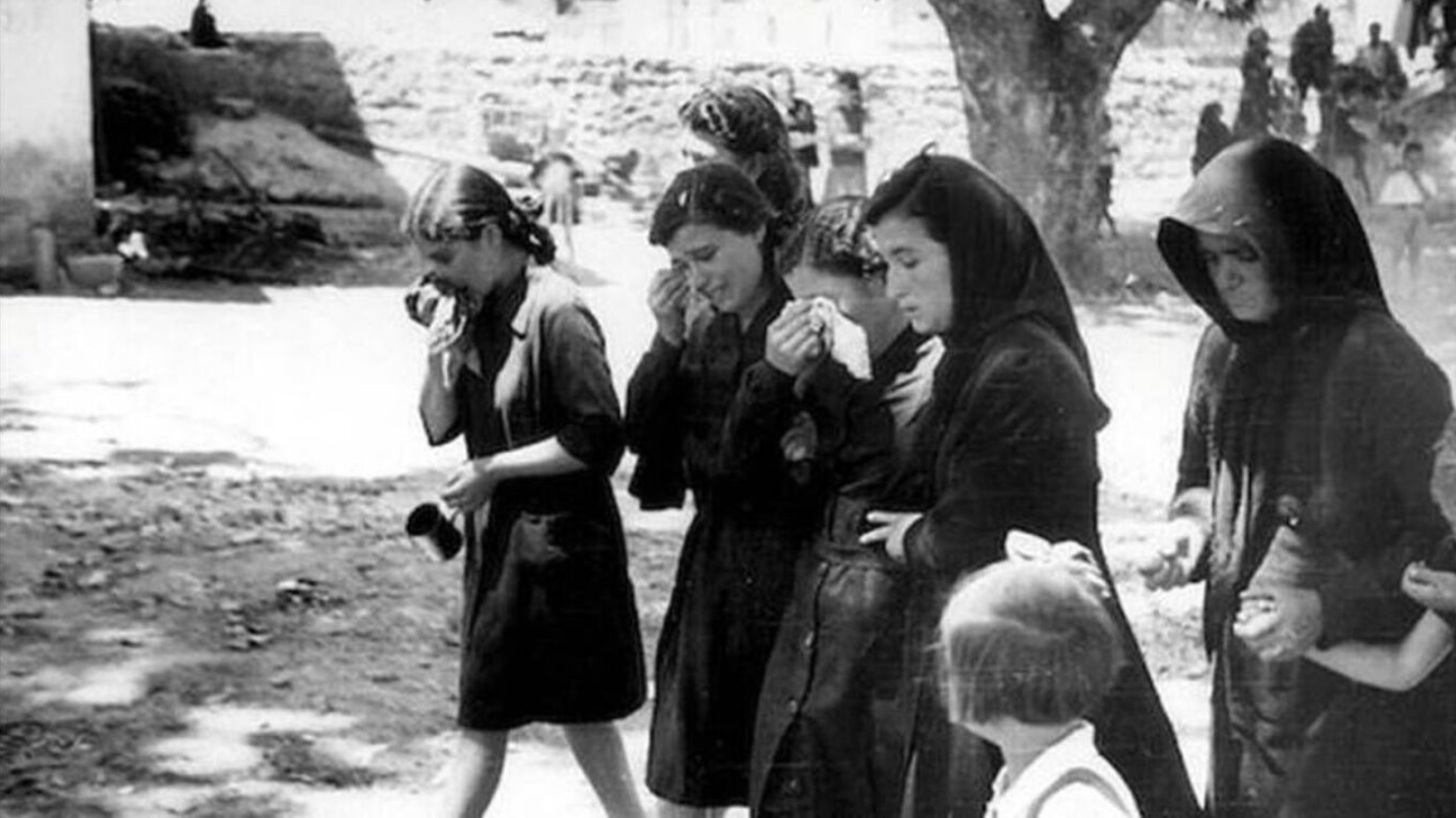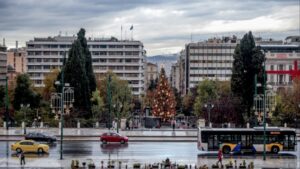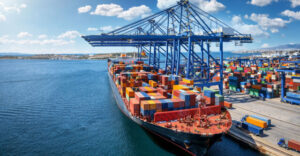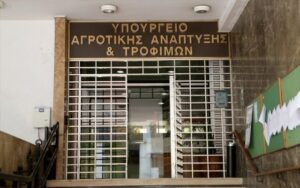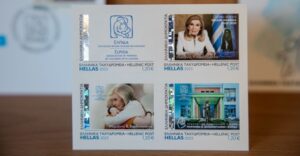The issue of reparations for the atrocities and the “forced loan” during the Occupation was raised— as it is in all visits by German officials to Athens—by both the President of the Republic and the Prime Minister during their meeting with the President of Germany, Frank-Walter Steinmeier, who is making an official visit to Greece.
The Social Democrat politician, who will visit the martyred Kandano tomorrow to officially recognize the Nazi atrocities, stuck to Berlin’s official line that the matter has been definitively closed.
“For Greece, the issue of reparations, especially the forced occupation loan, remains very ‘alive,’ and we hope to resolve it at some point,” said Prime Minister Kyriakos Mitsotakis to President Frank-Walter Steinmeier during their meeting on Wednesday morning at the Maximos Mansion.
As the Prime Minister stated, Greek-German relations are “entering a new era, leaving behind crises.” Mitsotakis emphasized the upcoming visit of the German President to Crete, particularly to Kandano, stating that his presence “signifies recognition of the suffering of the Greeks.”
During the meeting, international developments, the prospects of Greek-German relations, and the strengthening of Greek-German cooperation within the EU were discussed.
Prime Minister Kyriakos Mitsotakis specifically remarked: “Mr. President, I am genuinely pleased to welcome you to Athens. I believe this is a very important visit, highlighting that Greek-German relations are entering a different era, leaving behind a tumultuous period of crisis. As you know, Greece is doing much, much better economically. I consider this a great opportunity to talk about the future, about what we can do together as European partners facing major issues like competitiveness and migration. We must cooperate to resolve them. However, I would like to personally, and as a Cretan, thank you for choosing to visit my home island of Crete tomorrow and for visiting Kandano to officially recognize the Nazi atrocities that occurred on the island during World War II. I consider this a very significant gesture. As you know, for Greece, the issue of reparations and especially the forced occupation loan remains very ‘alive,’ and we hope to resolve it at some point. Nevertheless, I would like to place particular value on your presence in Greece, in Crete. I believe this is a gesture of great significance for us. So thank you again for your visit. We look forward to a very productive course toward further strengthening our bilateral relations.”
For his part, the President of Germany said, “Thank you for your kind invitation and your time, Mr. Prime Minister. I am glad to be back in Greece and to say that I remember both the easy periods in our bilateral relations and the difficult ones.
Therefore, I am particularly happy that Greece has returned to a path of economic growth, fueling our bilateral economic transactions, and that German companies continue to not only be present but also to invest here in Greece. Just yesterday, we visited the production facility of the German company Boehringer Ingelheim near Athens.
I hope that our bilateral relations, not only in economics but also in cultural exchanges and among our two peoples, will develop in the coming years within a democratic Europe that represents freedom globally and is a place worth living in.”
President Steinmeier was welcomed at the entrance of Maximos Mansion by Kyriakos Mitsotakis, with the two politicians exchanging a warm handshake.
After entering the Maximos Mansion, Kyriakos Mitsotakis and Frank-Walter Steinmeier had a private meeting.
See Photos:
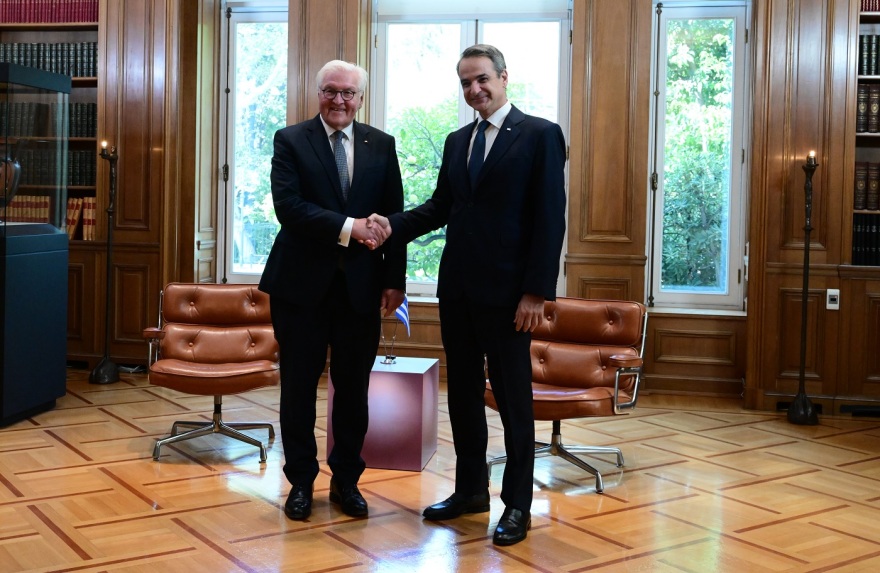
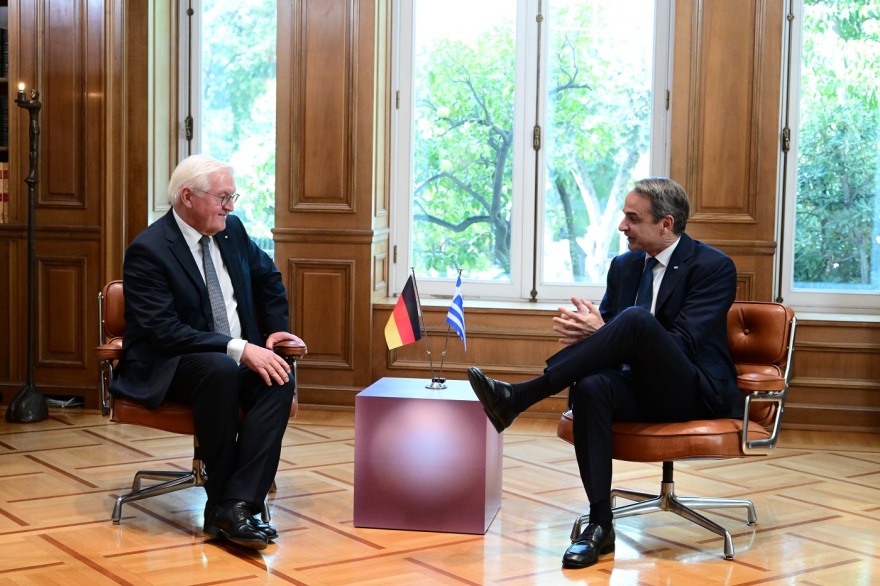
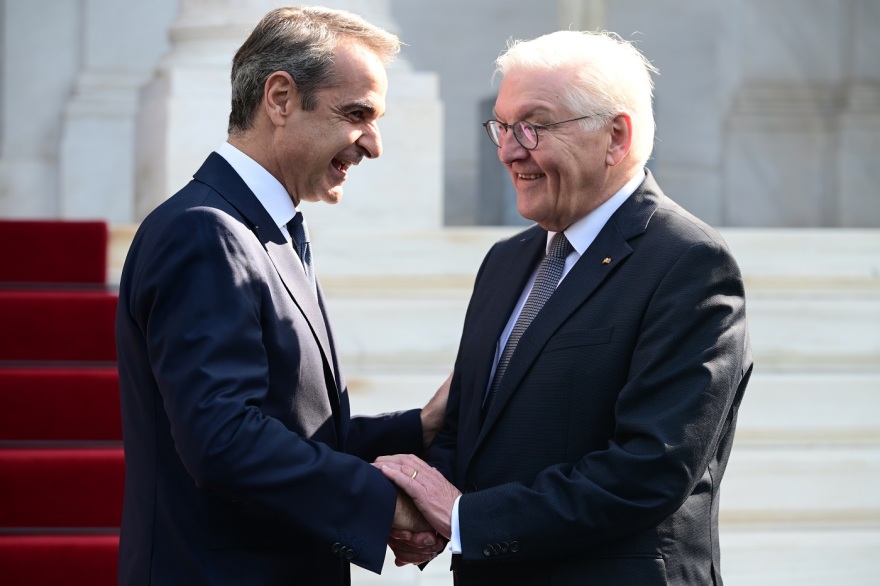
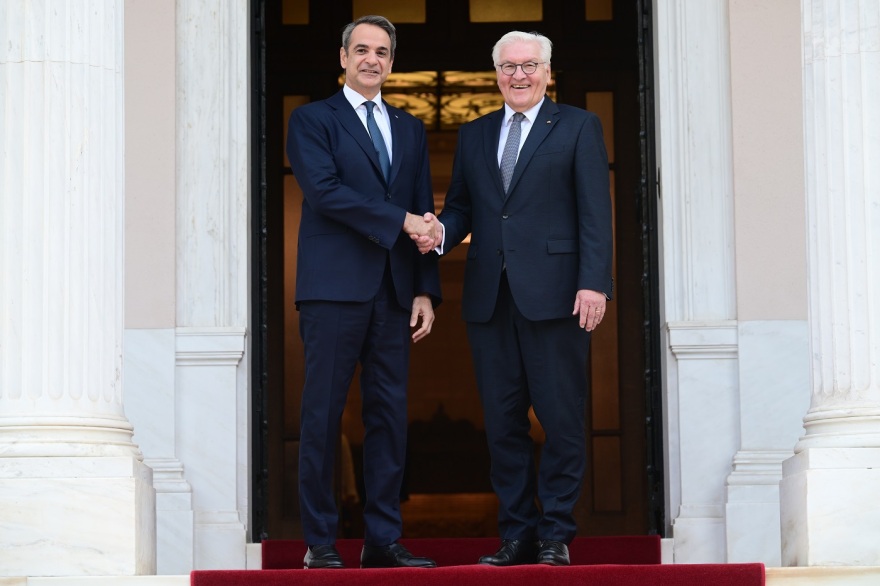
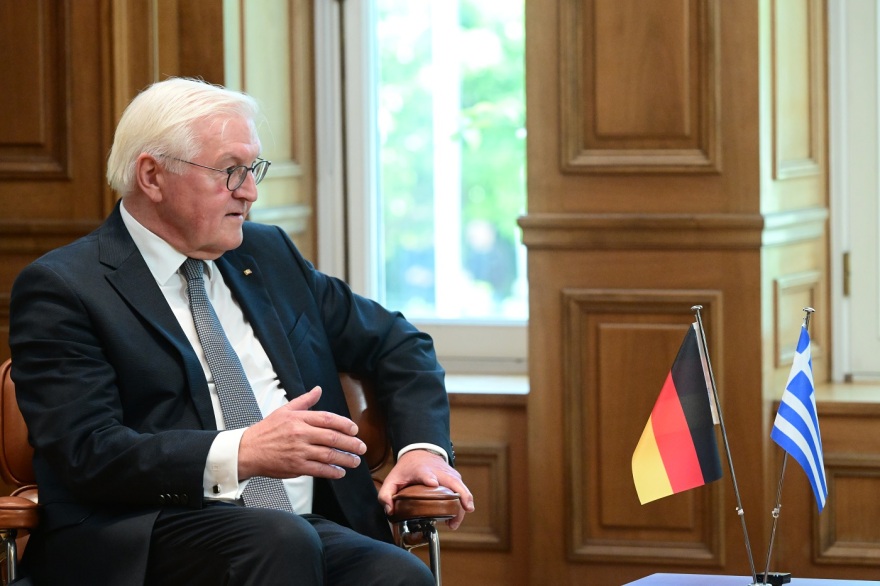
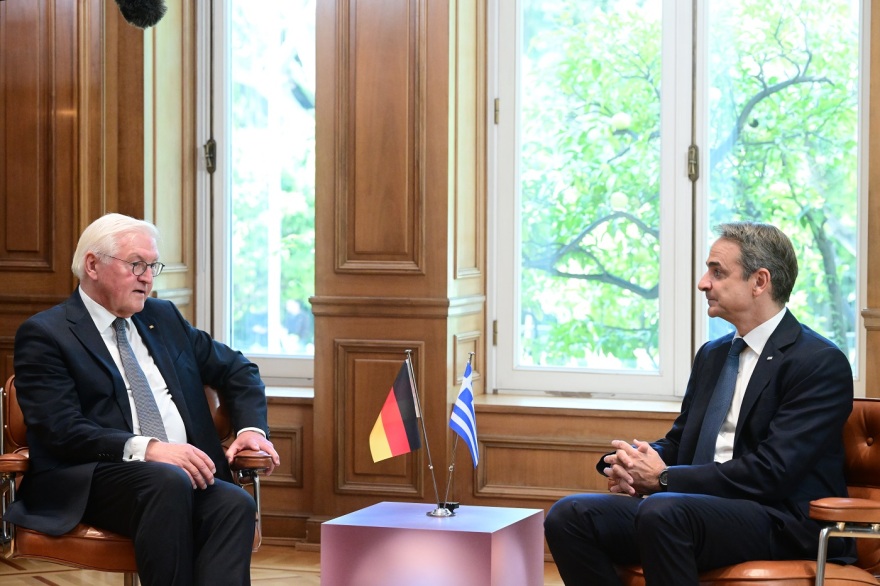
Earlier, Katerina Sakellaropoulou also raised the issue of German reparations with the President of Germany, Frank-Walter Steinmeier.
During their meeting on Wednesday morning at the Presidential Mansion, the President of the Republic emphasized to Steinmeier that the issue of German reparations is still pending and that it is important to address matters of the past.
For his part, the President of Germany responded that, legally, the issue is considered closed for his country.
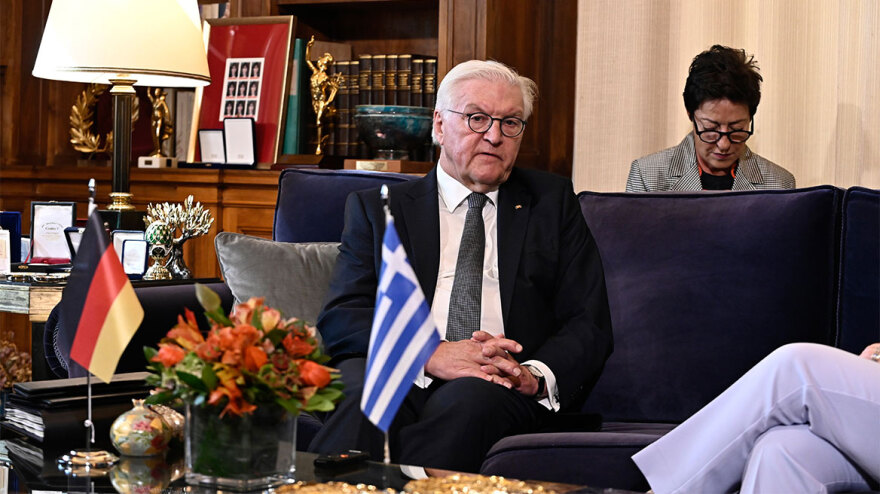
“Our legal positions on the issue of reparations differ, and you know this. We believe that legally this issue is considered closed. However, we remain committed to our historical responsibility, not only regarding Thessaloniki but also elsewhere. This was the reason that prompted me to reach out to the remaining members in Thessaloniki, to the Jewish community, and discuss how we could create a memorial for the people who were lost,” he notably stated.
Sakellaropoulou also mentioned that this was the beginning, if you will, of the idea to create a museum in Thessaloniki, not only regarding the victims of the Holocaust but also all the victims of the German occupation. “Tomorrow, I will travel to Crete, visit one of the martyr villages, and speak publicly about the responsibility we Germans have toward the victims and what occurred. This is a difficult topic, yet it remains part of our current relationship. It is a matter that takes on significant importance, and I would not want to avoid it,” the President of Germany added.
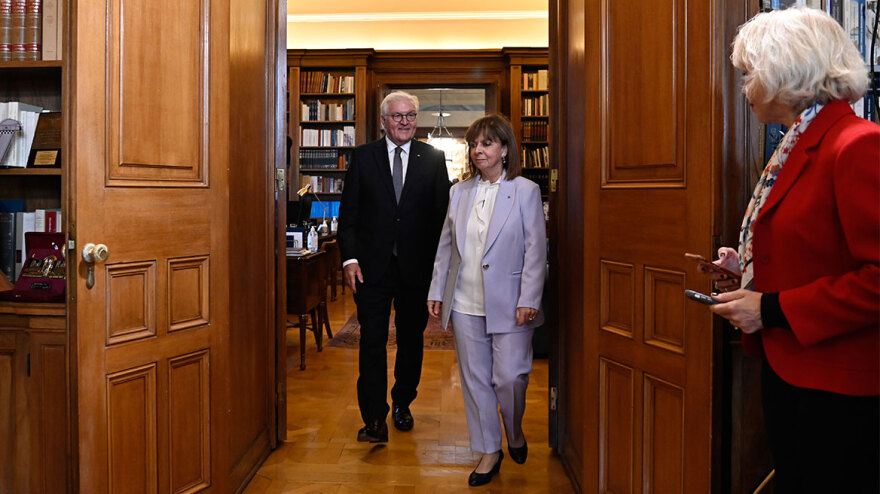
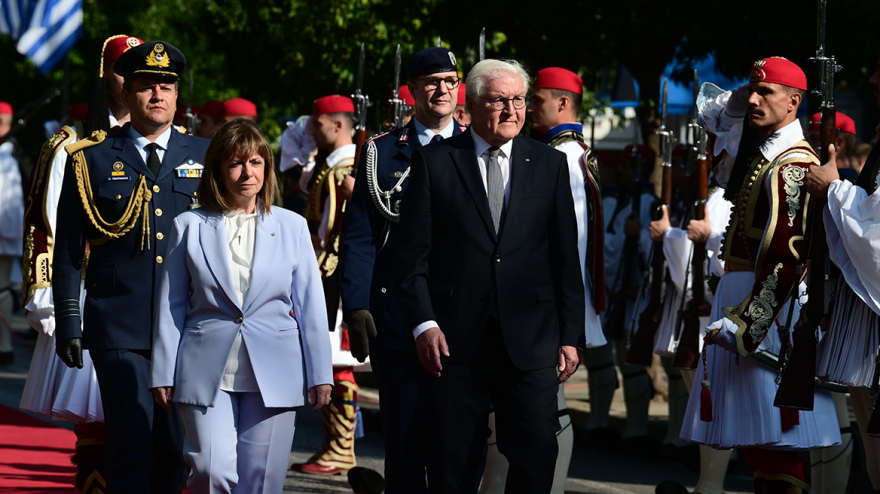
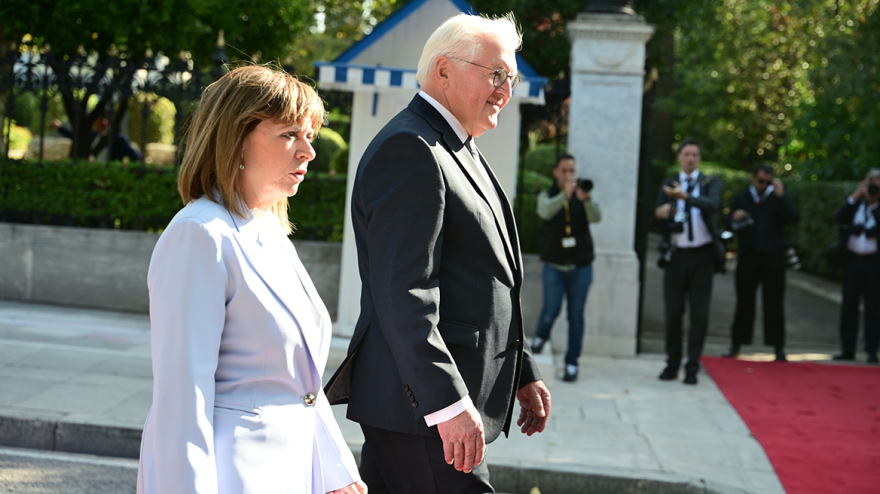
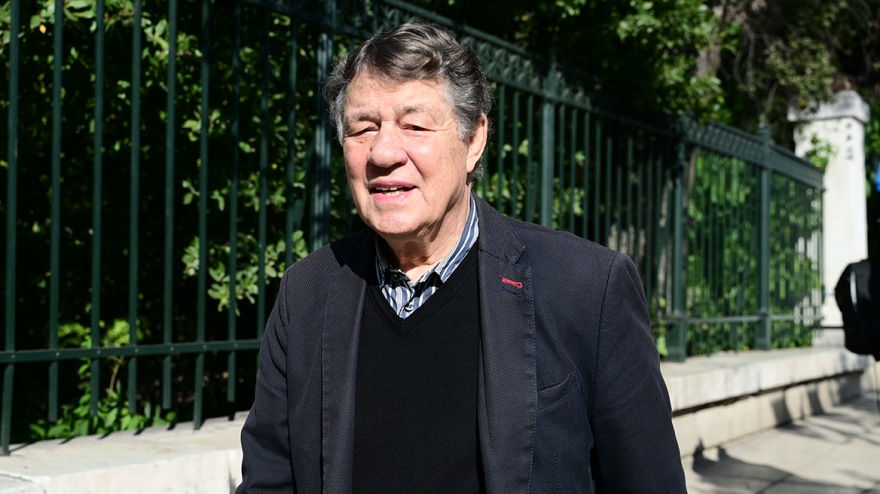
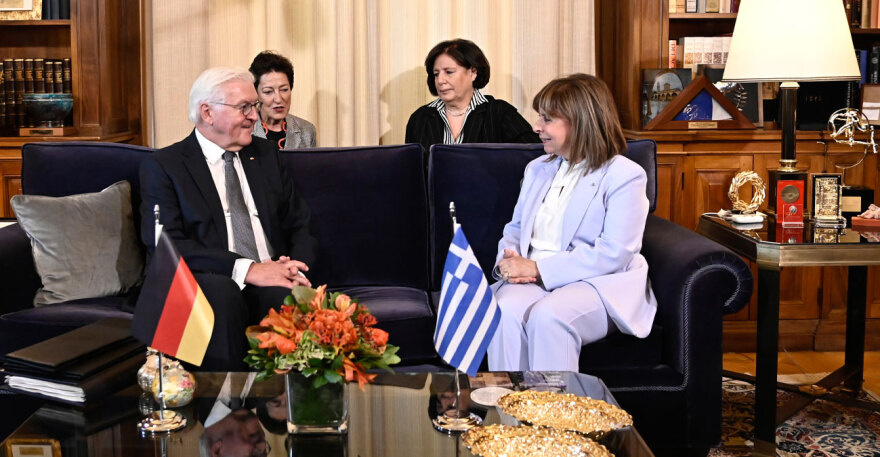
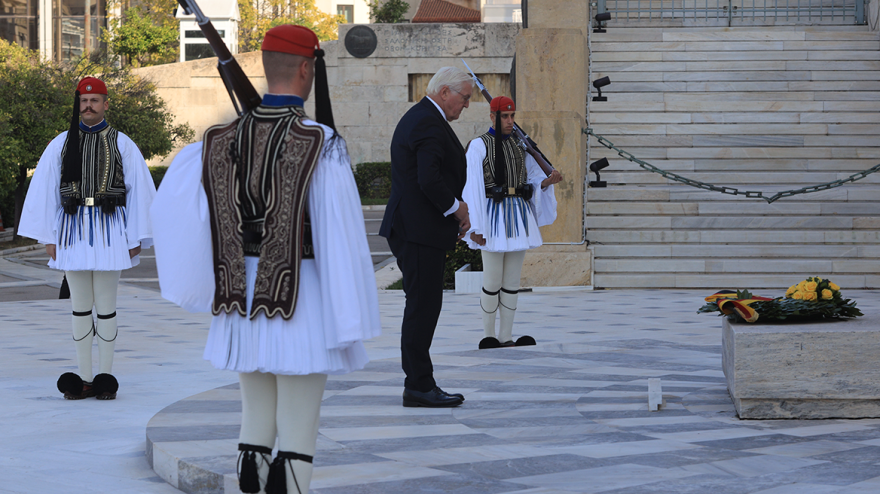
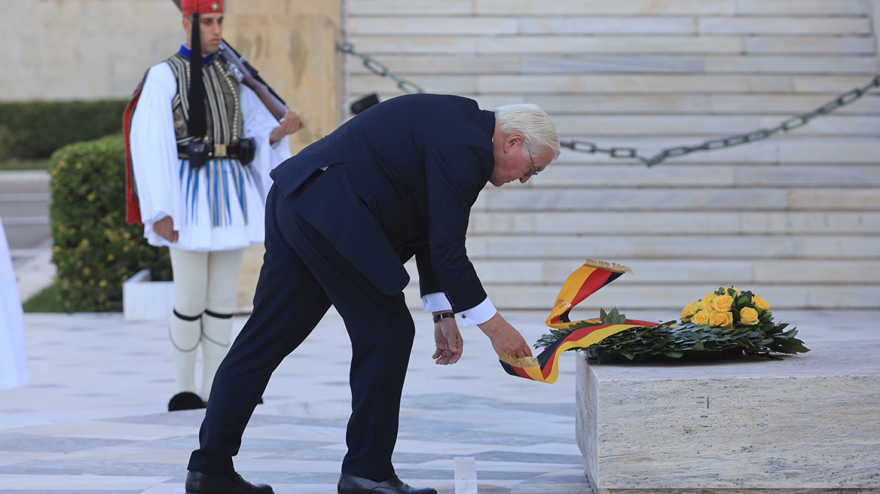
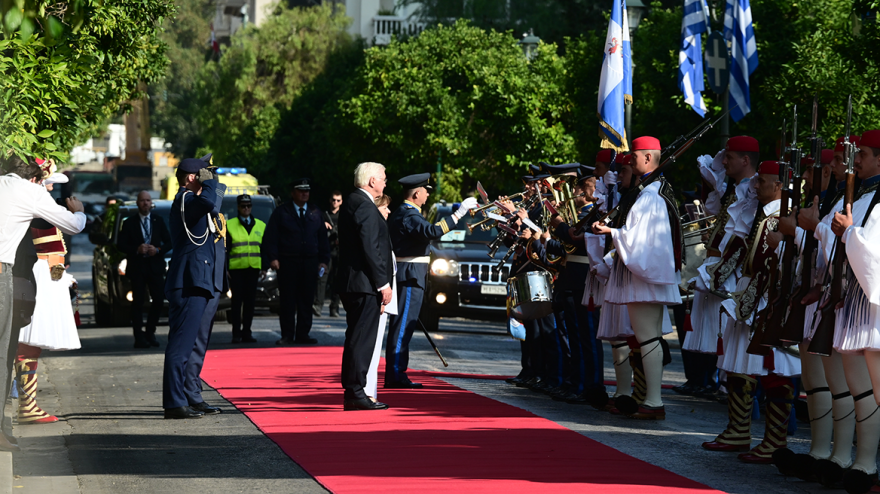
Later, Mr. Steinmeier will visit the Numismatic Museum and then participate in the celebratory event for the “150 years of the German Archaeological Institute in Athens.” At 3:15 PM, the President of Germany will visit the Reception Center for Asylum Seekers in Malakasa, and in the evening at 6:45 PM, he will attend an event at the archaeological site of Kerameikos.
In the evening, at 8:30 PM, the President of the Republic, Katerina Sakellaropoulou, will host an official dinner in honor of President Frank-Walter Steinmeier and Elke Budenbender at the Presidential Mansion.
Ask me anything
Explore related questions
